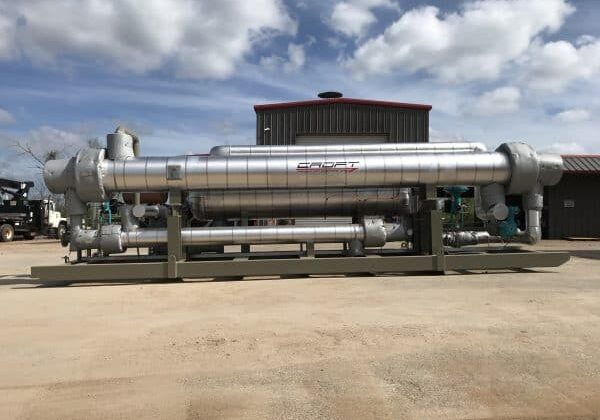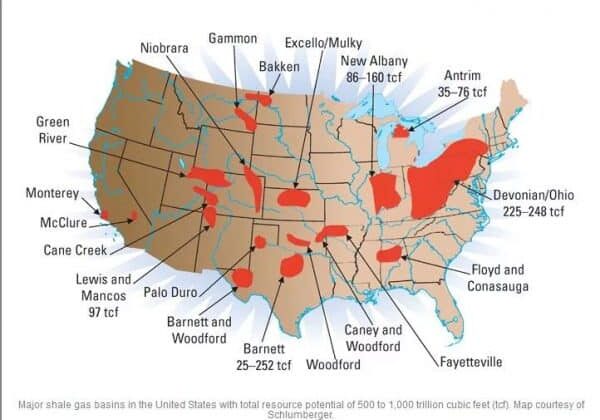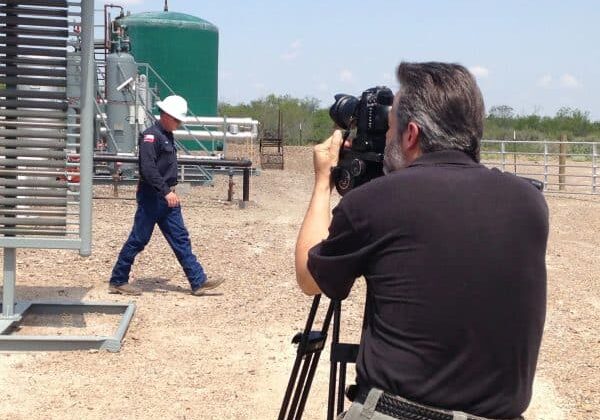This week our Guest Blogger is Chris Smithson, the Lead Engineer for CROFT. You may have seen him at the expos, talked to him during a conference call, or met him out in the field. When Chris isn’t busy creating proposals, he designs and develops gas processing equipment.
I was recently presenting our products at a clients’ office when I heard a statement that pops up often when I get to the part about our Fuel-Gas Conditioning Systems (FCS). That statement is “wish I had one of those _ years ago”. This sentiment is common with anyone in engineering or operations that has had to troubleshoot equipment or engines running on rich gas. Today’s engines greatly cut emissions but do not like when gas quality fluctuates. Temperature changes on location, wells coming on or off, pressure fluctuations, etc. can all cause gas quality to vary. BTU swings, wet gas, and liquids can all wreak havoc on an engine and the typical industry answer of a separator alone is not sufficient to protect equipment.
When it comes to cleaning fuel gas for the typical engines CROFT sees it is not so much the BTU that may need to be changed but the amount of the heavier gas components that are in the gas. Removing the Hexanes, Pentanes, and a chunk of the butanes and propane really help to increase reliability in the engines. In talking to engine experts from Caterpillar and engine package engineers from some of the leading compressor and generator rental companies, these heavier components and the instability in the gas quality they cause can ruin reliability and increase maintenance. For us in the service and operations side, reliability can mean the difference between getting a call at 2am and enjoying your weekend.
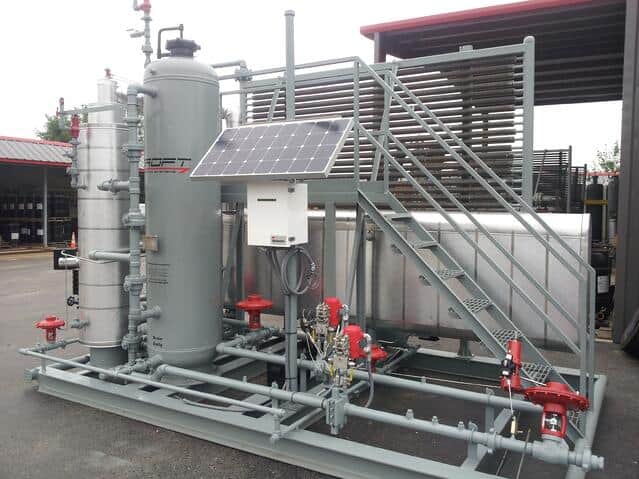
Poor quality fuel gas was exactly the problem one of our south Texas clients was having with numerous compressor stations. The stations were gathering gas for transmission to central processing and had 2-4 large compressors on them consuming about 300-500 Mcfd worth of fuel. The operators were having at least one compressor go down per site every other day. Depending on how long the unit was down for meant hours of lost production. Even with gas at $2/Mcf, a compressor moving 5 MMcfd down for more than 5-6 hours a month has lost more in revenue than the monthly cost of renting our FCS-500.
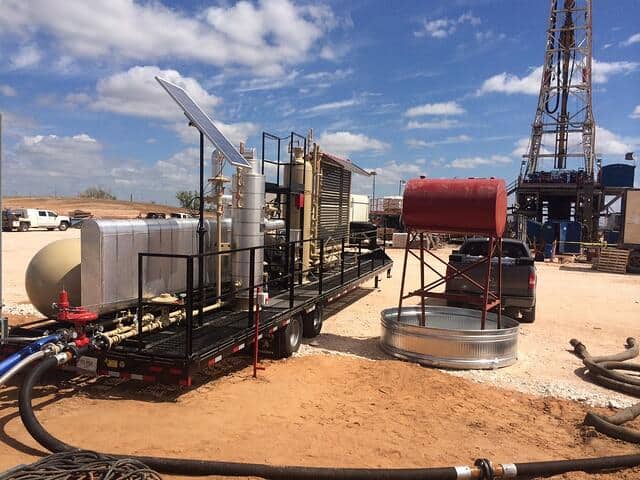
Our flagship unit, the FCS-500, is simply a combination of our other systems, packaged onto a single skid. It cools the gas, separates liquids, dries the gas, and lowers the BTU in one reliable package. The FCS-500 was also our first FCS and designed with the goal of maximizing natural gas compressor uptime. We have also used the unit for cleaning fuel gas for on-site generators such as bi-fueled drilling rigs. As well as custom packaged units on trailers.
To learn more about our Fuel Gas Conditioning line click below. If you would like to submit your info for a consultation e-mail us @ [email protected]

